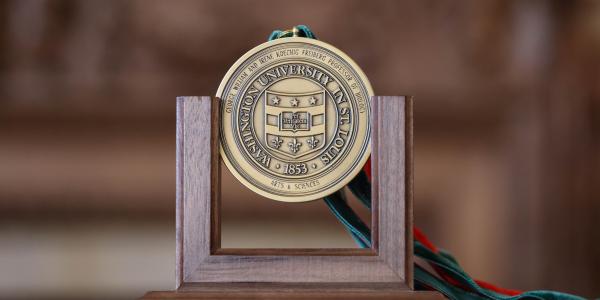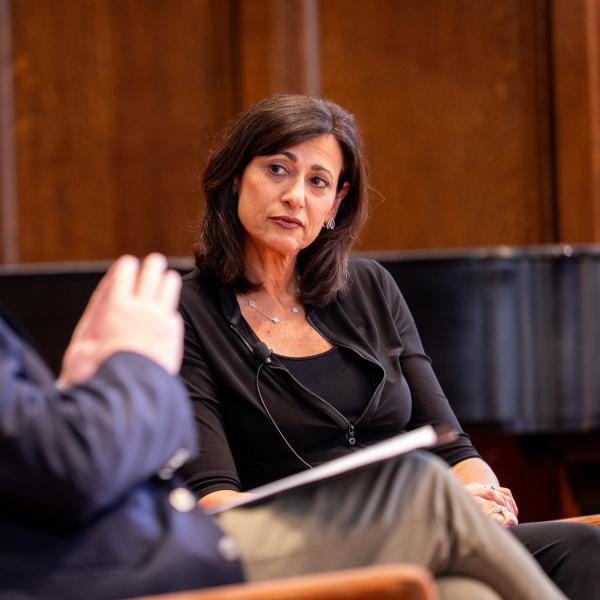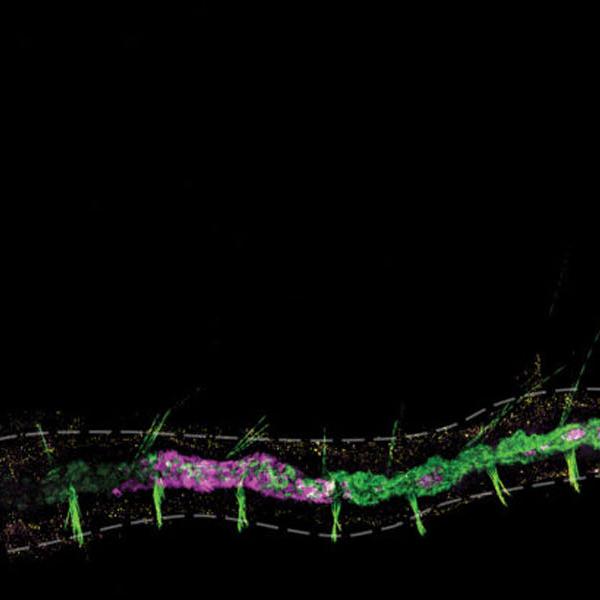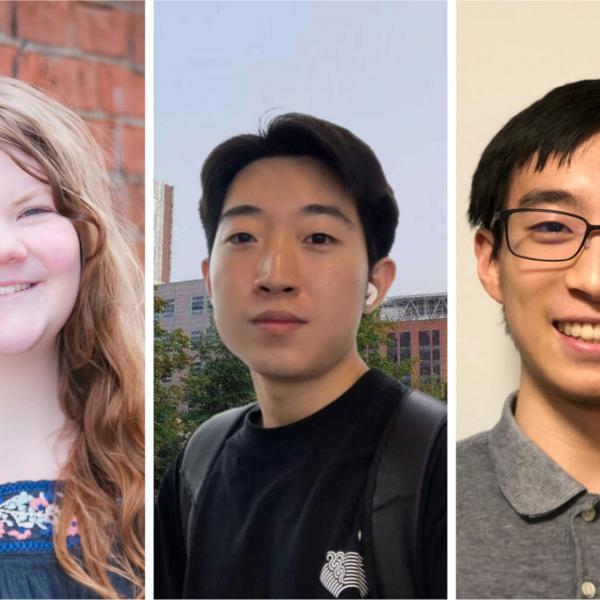During her installation address, “The Environment Matters,” Petra Levin discussed how cells respond to changes in the environment and the importance of this research in addressing antibiotic resistance.
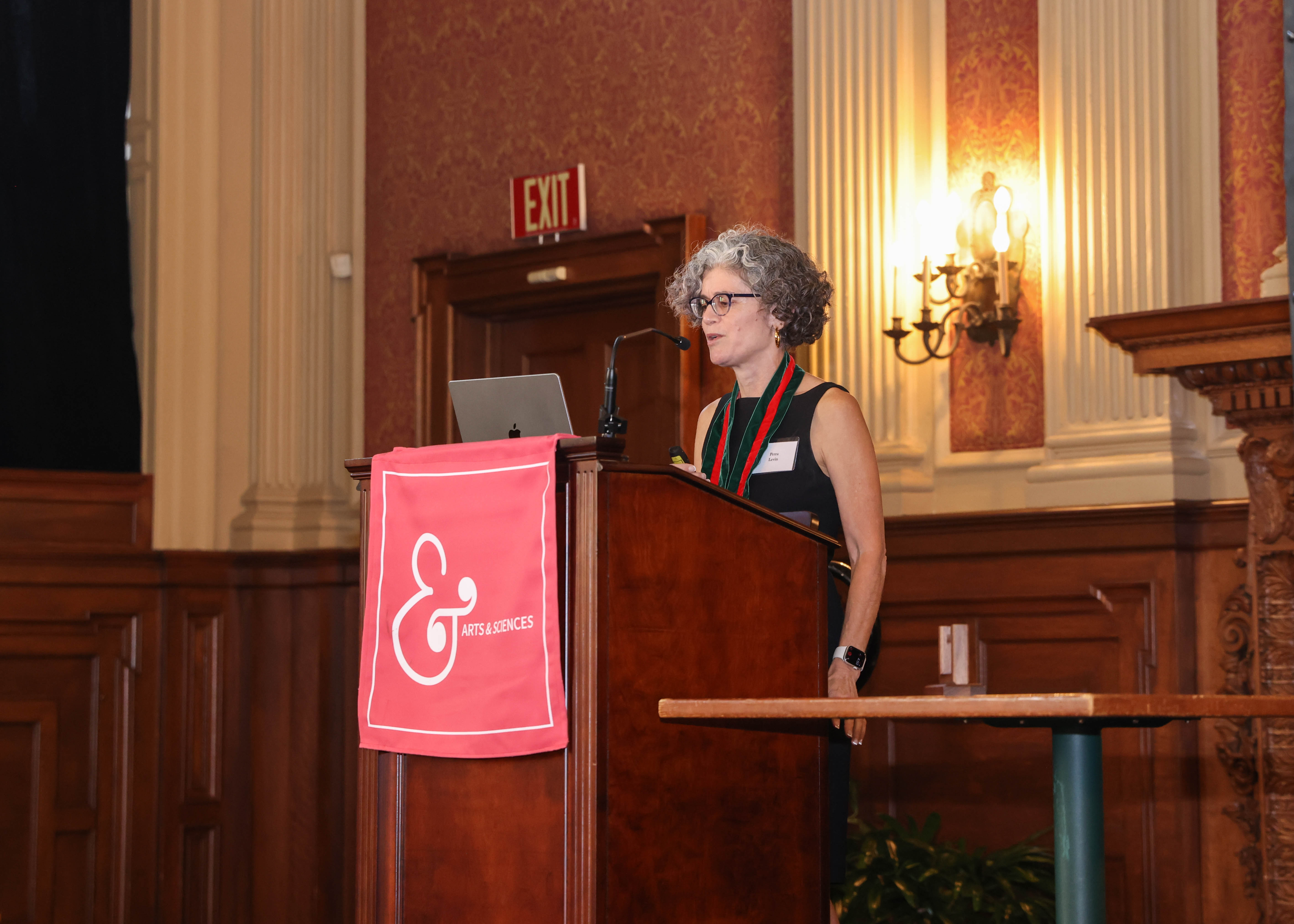
On Sept. 19, Petra Levin was installed as the George William and Irene Koechig Freiberg Professor of Biology. The program included a welcome from Feng Sheng Hu, the Richard G. Engelsmann Dean of Arts & Sciences and Lucille P. Markey Distinguished Professor; an introduction by Jonathan Losos, the William H. Danforth Distinguished University Professor; and the installation and medallion presentation by Provost Beverly R. Wendland.
During her installation address, “The Environment Matters,” Levin discussed how cells respond to changes in the environment and the importance of this research in addressing antibiotic resistance.
About Petra Levin
A native New Englander, Petra did not initially aspire to be a scientist. She started college vaguely pre-med, thinking she would double major in biology and Russian, a language she had taken and loved in high school. Ultimately, realizing she enjoyed the former more than the latter, she decided to focus on biology. (Although biology has a lot of jargon, it does not require mastery of nominal declensions!)
After surviving the traditional gauntlet of introductory science courses, Petra enrolled in a laboratory course that reproduced classic experiments in animal development. It was there that she was introduced to what biology is really about. Petra still remembers watching Hydra develop from a fertilized egg to a beautiful — if tiny — multicellular organism. This experience introduced her to the magic of biology. As a college senior, she learned to solve biological puzzles in a lab. She spent the year trying to identify a protein responsible for keeping the DNA repair system “off” until it was needed. Despite failing repeatedly, she loved the independence of designing and troubleshooting her own experiments. That experience sealed the deal. She would be a scientist.
As a doctoral student, Petra was fascinated by how cells determine when and where to divide. She studied the potential of newly developed fluorescent probes to visualize cell cycle progression in bacteria and identified factors governing division site selection in Bacillus subtilis. As a Damon Runyon postdoctoral fellow and as a new PI, she leveraged these probes to characterize a coterie of proteins modulating the localization and assembly of the tubulin-like division protein FtsZ. Foundational work from her group has identified signaling networks linking bacterial size to nutrient availability, revealed direct links between metabolism and cell cycle control, and illuminated the mechanisms underlying pH-dependent changes in antibiotic
resistance. Working across model systems, her group continues to conduct pioneering work on the mechanisms linking the physicochemical environment with bacterial growth and behavior, particularly as it pertains to cell morphology and antibiotic susceptibility.
Petra’s work has garnered awards and recognition both in her field and in the popular press. In 2005 she became the first member of the Washington University Department of Biology to receive a National Science Foundation CAREER Award. In 2015 she served as a Fulbright Scholar to the Netherlands, and she was elected to the American Academy of Microbiology in 2018. Delivering impact beyond the bench, Petra developed EnTER, a work-study-based program that helps first-generation, low-income undergraduates gain significant research experience and transition to careers in science. Passionate about science communication, she is a co-host of the popular ASM podcast “This Week in Microbiology.”
Petra’s intellectual journey has been strongly influenced by her mentors. Her undergraduate professors, Marsha Altschuler and Chip Lovett, inspired her to be a teacher who conveys the beauty of biology and the thrill of discovery in every lecture. Rich Losick, her PhD advisor, instilled in her the idea that teaching and research are mutually reinforcing enterprises and that being a cheerleader is integral to being a good PI. Her postdoctoral advisor, Alan Grossman, taught her to follow the data, even if it takes you to unexpected places, and that open science is the best science. Petra hopes she can convey the same enthusiasm for research and teaching to her students and colleagues for many years to come.
About George William and Irene Koechig Freiberg
The George William and Irene Koechig Freiberg Professorship in Biology was established in 1983 when Dr. George William Freiberg set up two charitable remainder unitrusts and arranged for a majority of his estate to go to Washington University upon his death.
Dr. Freiberg was born in 1892 in southeastern Minnesota. He completed undergraduate work at the University of South Dakota and received a master’s degree from the University of Missouri. In 1917 he received a PhD in microbiology from Washington University.
Upon completing his doctorate, Dr. Freiberg served in England and France during World War I as part of the university’s Base 21 Hospital, a U.S. military hospital staffed by doctors and nurses of the Washington University School of Medicine and civilian volunteers from the St. Louis area.
Following the war, he worked several years for Commercial Solvents Company in Terre Haute, Ind., before moving to St. Louis to join Anheuser-Busch, Inc. He retired as coordinator of research and patent information at Anheuser-Busch in 1953.
Irene Koechig Freiberg, a native St. Louisan whose father owned a feed store and warehouse in the city, received bachelor’s and master’s degrees in Arts & Sciences from Washington University in 1911 and 1912, respectively. In 1919, she was one of the first women appointed to the faculty at the School of Medicine. From 1920 through the mid-1950s, Mrs. Freiberg taught biological chemistry and microbiology in the Washington University School of Nursing. She authored several scientific articles as well as a textbook, “Chemistry for Nurses,” published in 1930.
Dr. and Mrs. Freiberg are among the recipients of the Washington University ALLIANCE Appreciation Award (now called the Robert S. Brookings Award), which is given to individuals who by commitment and generosity exemplify the alliance between Washington University and its community. Mrs. Freiberg died in 1975; Dr. Freiberg in 1989.

